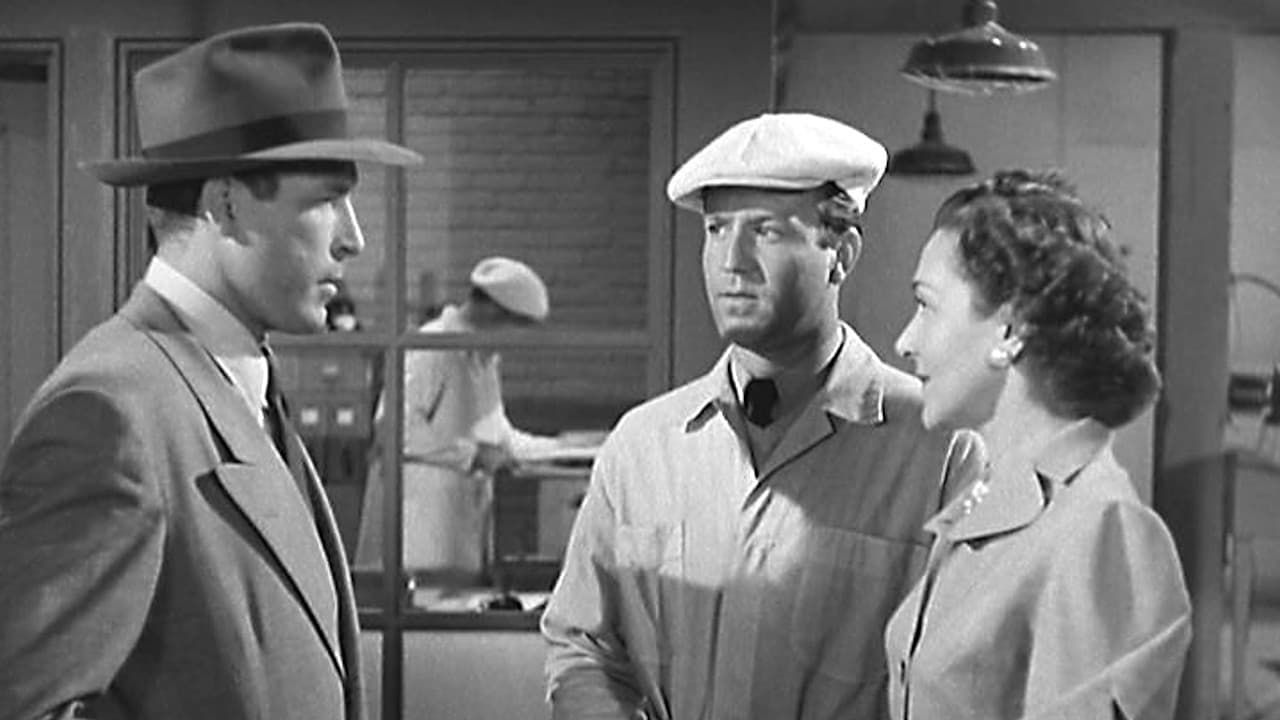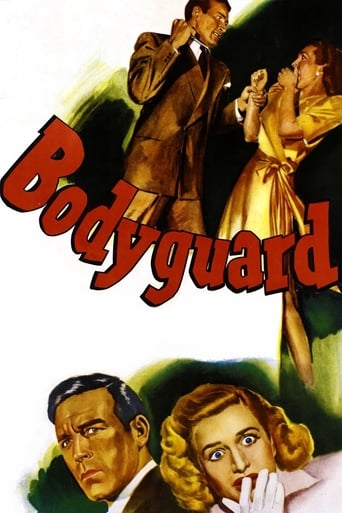

BODYGUARD is a taut little thriller directed by Richard Fleischer in the early years of his career. At a trim 60 minutes, it packs in more plot than modern movies do in their two-hour running times. I especially enjoyed Lawrence Tierney in an infrequent good guy role - here he's Mike Carter, a cop with a nasty temper who gets himself fired for slugging his commanding officer. He's then approached to act as a bodyguard for an ageing widow who runs her late husband's meat-packing plant. Though he's grim-jawed throughout, and doesn't display much sense of humour at all, never mind sardonic wit, the film's noir trappings have lead many to label this a noir picture.However, lacking a deadly female leading the hero into all kinds of trouble and with no typically gloomy noir ending, I can't put this movie in that pigeonhole.The heroine is the sunny and all-American Priscilla Lane in her last film. She'd earlier made quite a splash as the fiancé of Mortimer Brewster (Cary Grant) in the madcap comedy ARSENIC AND OLD LACE, and here plays the faithful and supportive girlfriend of Tierney.There's not a lot to dislike about this film. Carter doesn't have much personality, but he doesn't need it to solve the case. The other cops are a bit one dimensional and the family at the centre of the mystery don't have a lot to do. But it clocks in at 4 seconds under an hour, and its very brevity is more of a plus point than a liability. Try to catch it if it turns up on TCM. It's a fine object lesson in economic storytelling.
... View MoreSlick,speedy 'B' thriller with on(and off!)screen tough guy Lawrence Tierney as a suspended cop eventually agreeing to do some work on the side as a bodyguard for a wealthy family.The plot is inevitably fairly routine,but there are some well-handled scenes,and it remains watchable.One fact not usually mentioned;this was the final screen appearance of Priscilla Lane(best known for her roles in WARNER BROS. classics in the 30's,and Hitchcock's SABOTEUR);she was still far too young and surely had more years ahead as a screen actress.Her performance in her screen bow is OK,like Tierney and the rest of the cast.Director Richard Flesicher had better 'B' efforts up his sleeve though(THE NARROW MARGIN),a few years later.
... View MoreUsually the most routine of programmers will have something to recommend it: inventive cinematography, creative use of lighting and/or sound, a gem of a performance by a virtual unknown, a clever plot. Here is a film which, to give it the benefit of the doubt, is second-rate in all respects, a film whose budget, however slight, could have been put to better use. Virtually every twist and turn of the contrived story had been used elsewhere, the characters with whom we would identify are undeveloped and unappealing, and leading man Lawrence Tierney, stoical to a fault, had surely received his training at the George Raft School of Acting. With so many worthy films never shown on television, it is most unfortunate that a network chose to devote airtime to this one. Movies like this give B-pictures a bad name.
... View MoreFleischer would go on to direct much better movies, and in fact the excellent "Follow Me Quietly" is his next film. Robert Altman's story co-credit indicates nothing. Enjoyable performances from Tierney and Lane, and a short and well-photographed fight scene in a butchery near the end, don't make up for the mundane plot.
... View More